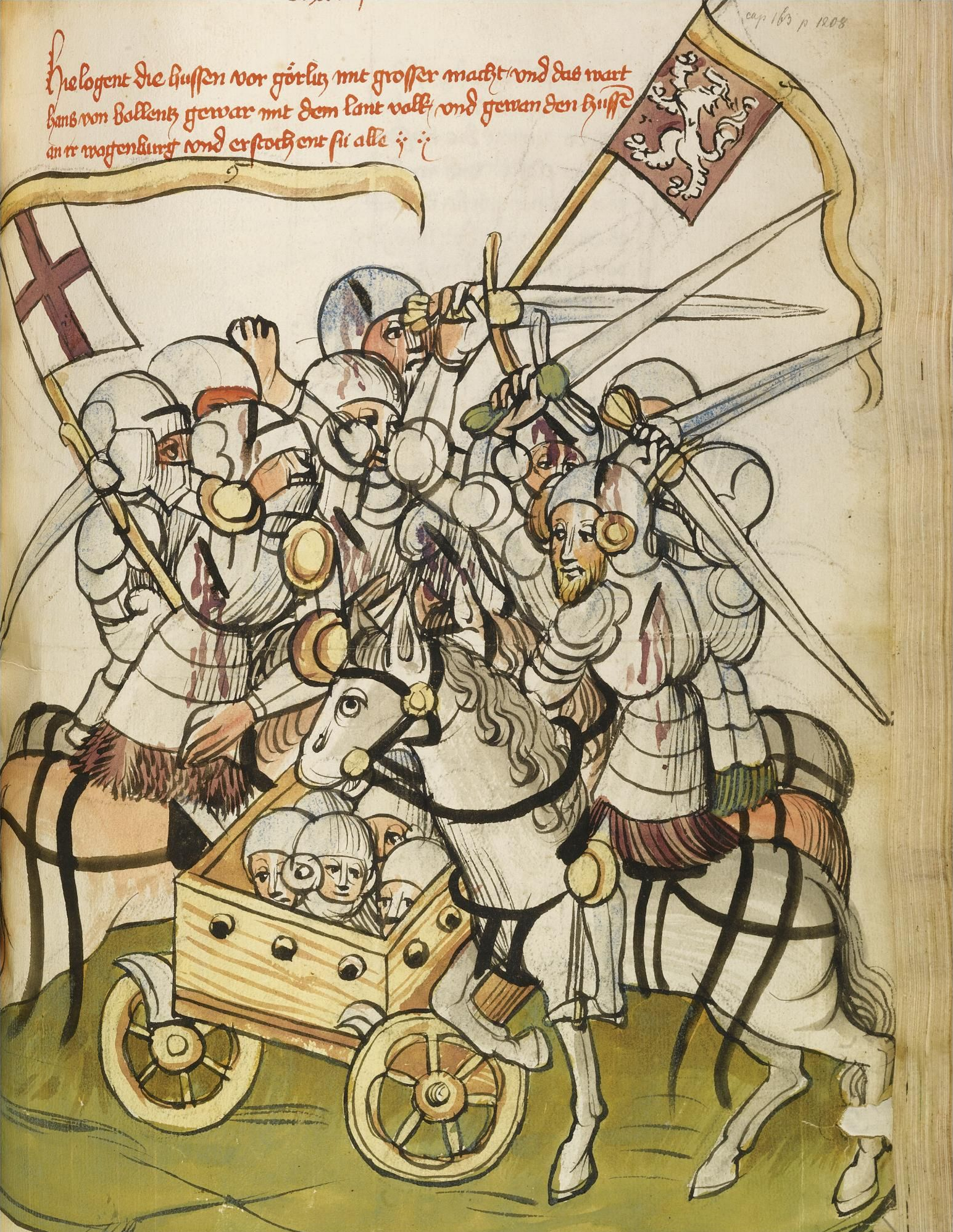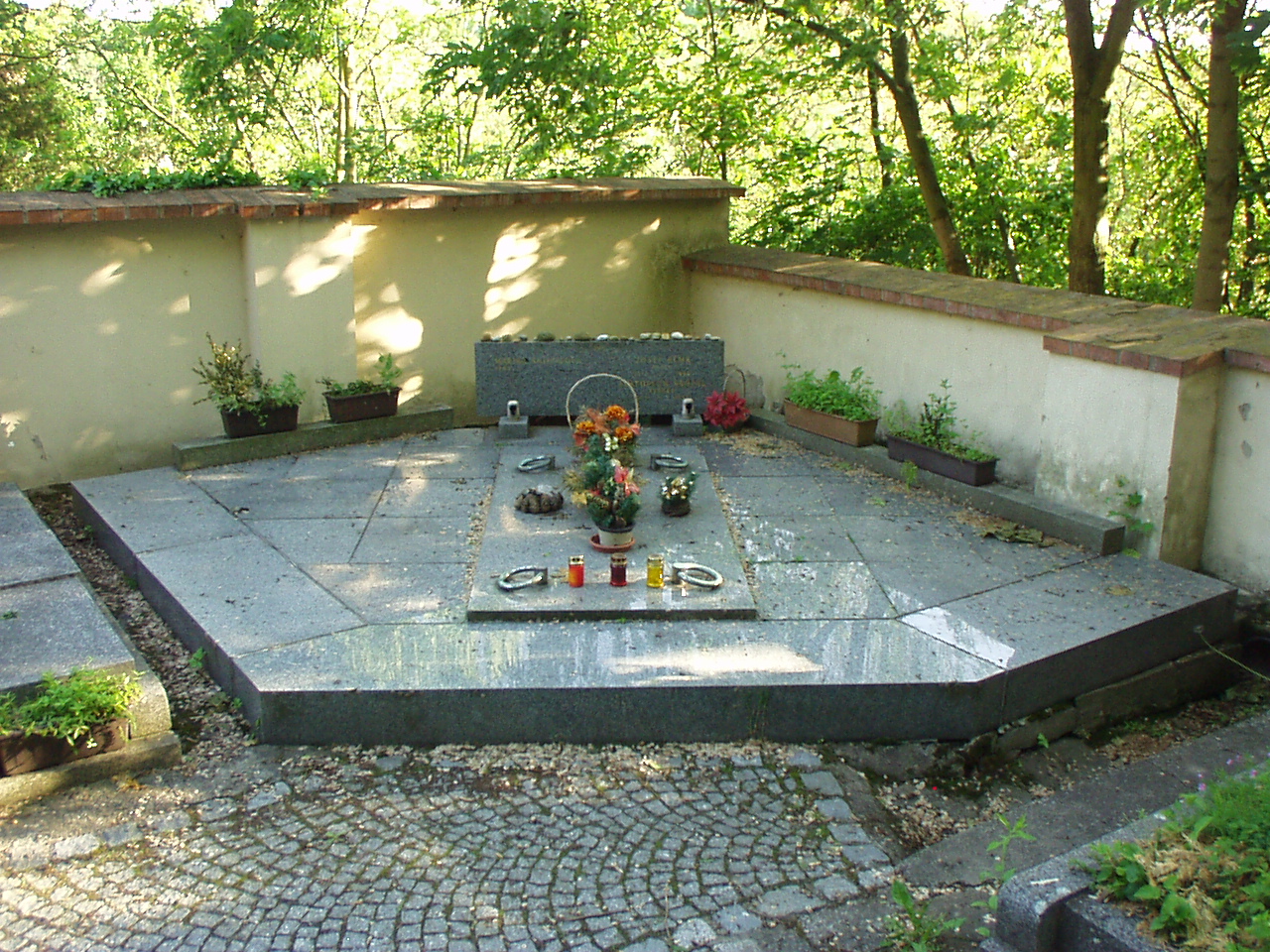|
Jan Žižka (1955 Film)
''Jan Žižka'' is a 1955 Czechoslovak film directed by Otakar Vávra. The film starred Zdeněk Štěpánek. It is sequel to Jan Hus. Plot takes place between 1419 and 1420. The central motif of the film is the escalation of the situation in Bohemia after the burning of master Jan Hus and the popular revolt against the papal authority and against the new King Sigismund. At the head of this rebellion is a priest Jan Želivský and the king's aide and later governor Jan Žižka. The film was followed by Against All. Cast * Zdeněk Štěpánek as Jan Žižka of Trocnova * František Horák as Jan Zelivský * Karel Höger as Wenceslaus, Czech king * Vlasta Matulová as Sophia, Czech queen * Ladislav Pešek as Miserere the jester * Jan Pivec as Sigismund, Holy Roman Emperor * Václav Voska as Čeněk of Wartenberg * Vítězslav Vejražka as * Gustav Hilmar as John of Chlum * Marie Tomášová as Johanka the servant * Josef Kemr as Ješek the student * Rudolf Hrušínský ... [...More Info...] [...Related Items...] OR: [Wikipedia] [Google] [Baidu] |
Otakar Vávra
Otakar Vávra (28 February 1911 – 15 September 2011) was a Czech film director, screenwriter and pedagogue. Biography and career Vávra attended universities in Brno and Prague, where he studied architecture. During 1929–30, while still a student, he participated in the making of a handful of documentaries and wrote movie scripts. In 1931, he produced the experimental film ''Světlo proniká tmou''. The first movie he directed was 1937's '' Panenství''. His 1938 film '' The Merry Wives'' was praised in '' Variety'' for "first-rate direction, a salty yarn and elaborate production effort", even though it had undergone certain cuts because it was considered too "ribald" by American censors. Vávra was a member of the Communist Party from 1945 to 1989. After the Communists seized power in 1948, Vávra adapted quickly to the new political climate and produced films praising the current regime and supporting the new, official interpretation of the past. In the 1950s he filmed ... [...More Info...] [...Related Items...] OR: [Wikipedia] [Google] [Baidu] |
Jan Pivec
Jan Pivec (19 May 1907 – 10 May 1980), was a Czechoslovak film and stage actor. He appeared in more than 69 films between 1940 and 1973. He concurrently spent 36 years acting in productions staged by Prague's National Theatre. Books published in 1989, and in 2006, detailed his career. Selected filmography * '' Delightful Story'' (1936) * '' Filosofská historie'' (1937) * '' Pantáta Bezoušek'' (1941) * ''The Blue Star Hotel'' (1941) * '' The Dancer'' (1943) * ''Rozina, the Love Child'' (1945) * '' Don't You Know of an Unoccupied Flat?'' (1947) * '' Divá Bára'' (1949) * ''Jan Hus'' (1954) * ''Jan Žižka'' (1955) * ''Against All (1956) * ''Zločin a trik II. ''Zločin a trik II.'' is a 1967 Czechoslovak film. The film starred Josef Kemr Josef Kemr (20 June 1922 – 15 January 1995) was a Czech actor. He starred in the 1969/1970 film ''Witchhammer'' under director Otakar Vávra. Selected filmogra ...'' (1967) References External links * 1907 births 1980 dea ... [...More Info...] [...Related Items...] OR: [Wikipedia] [Google] [Baidu] |
Tábor
Tábor (; ) is a town in the South Bohemian Region of the Czech Republic. It has about 34,000 inhabitants, making it the second most populated town in the region. The town was founded by the Hussites in 1420. The historic town centre is well preserved and is protected as an Cultural monument (Czech Republic)#Monument reservations, urban monument reservation. Administrative division Tábor consists of 15 municipal parts (in brackets population according to the 2021 census): *Tábor (25,625) *Čekanice (1,355) *Čelkovice (680) *Hlinice (208) *Horky (1,047) *Klokoty (1,092) *Měšice (1,759) *Náchod (340) *Smyslov (58) *Stoklasná Lhota (180) *Větrovy (393) *Všechov (37) *Zahrádka (49) *Záluží (189) *Zárybničná Lhota (348) Etymology Although the town's Czech language, Czech name translates directly to 'camp' or 'encampment', these words were derived from the Tábor's name, and the town was named after the biblical Mount Tabor located in Israel. The town also gave its na ... [...More Info...] [...Related Items...] OR: [Wikipedia] [Google] [Baidu] |
Hussite
file:Hussitenkriege.tif, upright=1.2, Battle between Hussites (left) and Crusades#Campaigns against heretics and schismatics, Catholic crusaders in the 15th century file:The Bohemian Realm during the Hussite Wars.png, upright=1.2, The Lands of the Bohemian Crown during the Hussite Wars. The movement began during the Renaissance in Prague and quickly spread south and then through the rest of the Kingdom of Bohemia. Eventually, it expanded into the remaining domains of the Bohemian Crown as well. The Hussites (Czech language, Czech: ''Husité'' or ''Kališníci'', "Chalice People"; Latin: ''Hussitae'') were a Czech Proto-Protestantism, proto-Protestant Christian movement influenced by both the Byzantine Rite and John Wycliffe that followed the teachings of reformer Jan Hus (floruit, fl. 1401–1415), a part of the Bohemian Reformation. The Czech lands had originally been Christianized by Byzantine Empire, Byzantine Greek missionaries Saints Cyril and Methodius, who introduced the ... [...More Info...] [...Related Items...] OR: [Wikipedia] [Google] [Baidu] |
Defenestrations Of Prague
The Defenestrations of Prague (, , ) were three incidents in the history of Bohemia in which people were Defenestration, defenestrated (thrown out of a window). Though already existing in Middle French, the word ''defenestrate'' is believed to have first been used in English in reference to the episodes in Prague in 1618 when the disgruntled Protestant estates threw two royal governors and their secretary out of a window of the Hradčany Castle and wrote an extensive apologia explaining their action. In the Middle Ages and early modern times, defenestration was not uncommon—the act carried elements of lynching and mob violence in the form of murder committed together. The first governmental defenestration occurred in 1419, the second in 1483 and the third in 1618, although the term "Defenestration of Prague" more commonly refers to the third. Often, however, the 1483 event is not recognized as a "significant defenestration", which leads to some ambiguity when the 1618 defenestr ... [...More Info...] [...Related Items...] OR: [Wikipedia] [Google] [Baidu] |
Sigismund Of Luxembourg
Sigismund of Luxembourg (15 February 1368 – 9 December 1437) was Holy Roman Emperor from 1433 until his death in 1437. He was elected King of Germany (King of the Romans) in 1410, and was also King of Bohemia from 1419, as well as prince-elector of Brandenburg (1378–1388 and 1411–1415). As the husband of Mary, Queen of Hungary, he was also King of Hungary and Croatia (''jure uxoris'') from 1387. He was the last male member of the House of Luxembourg. Sigismund was the son of Charles IV, Holy Roman Emperor and his fourth wife Elizabeth of Pomerania. He married Mary, Queen of Hungary in 1385 and was crowned King of Hungary soon after. He fought to restore and maintain authority to the throne. Mary died in 1395, leaving Sigismund the sole ruler of Hungary. In 1396, Sigismund led the Crusade of Nicopolis but was decisively defeated by the Ottoman Empire. Afterwards, he founded the Order of the Dragon to fight the Turks and secured the thrones of Croatia, Germany and Bohem ... [...More Info...] [...Related Items...] OR: [Wikipedia] [Google] [Baidu] |
Rudolf Hrušínský
Rudolf Hrušínský (17 October 1920 – 13 April 1994) was a Czech actor. He was one of the most popular Czech actors. Many of his movies such as ''The Good Soldier Švejk'', '' The Cremator'' or '' Capricious Summer'' are considered classics of the Czech cinema. He was awarded the Legion of Honor by France and title ''National Artist'' in Czechoslovakia. Jiří Menzel once described him as "the Czech Jean Gabin." Biography He was born back stage at the theatre in Nová Včelnice on 17 October 1920. His parents were Hermina Červičková and Rudolf Hrušínský (born Rudolf Böhm). His family moved from place to place, but eventually settled in Prague. He studied law school, but dropped out of to pursue acting. Initially he starred in minor plays, but managed to escalate to famous film roles, many of which won him fame abroad. He spent most of his theatrical career in Czech National Theatre. In 1968 he signed The Two Thousand Words manifesto. As a result he was not allowed t ... [...More Info...] [...Related Items...] OR: [Wikipedia] [Google] [Baidu] |
Josef Kemr
Josef Kemr (20 June 1922 – 15 January 1995) was a Czech actor. He starred in the 1969/1970 film ''Witchhammer'' under director Otakar Vávra. Selected filmography *''Lízin let do nebe'' (1937) - Jula Plichta *''Škola základ života'' (1938) - tercián Vávra *''Klapzubova jedenáctka (film), Klapzubova jedenáctka'' (1938) - Kid Kicking Soccer Ball *''Jarka a Věra'' (1938) - Boy *''Druhé mládí'' (1938) *''Malí velcí podvodníci'' (1938) *''Tulák Macoun'' (1939) - Child *''Cesta do hlubin studákovy duse'' (1939) *''Lízino štěstí'' (1939) - Jula *''Bílá jachta ve Splitu'' (1939) *''Studujeme za školou'' (1939) - Václav Pelísek *''To byl český muzikant'' (1940) *''Prosím, pane profesore'' (1940) - Mysák, student *''Poznej svého muže'' (1940) - Pikolík *''Pro kamaráda'' (1940) - Císník v baru *''Rukavička'' (1941) *''Provdám svou ženu'' (1941) - Poslícek z kvetinárství *''Pantáta Bezoušek'' (1941) - Pepík *''Střevíčky slečny Pavlíny'' ... [...More Info...] [...Related Items...] OR: [Wikipedia] [Google] [Baidu] |
Marie Tomášová
Marie Tomášová (18 April 1929 – 25 May 2025) was a Czech film and stage actress. She acted at the National Theatre in Prague between 1955 and 1965. In 2008, she was awarded the Thalia Award for lifetime achievement in drama. She was married to theatre director Otomar Krejča until his death in 2009. Life and career Marie Tomášová was born in Dobrovice on 18 April 1929. Although her family was poor, her parents had a love for culture and introduced her to literature and music. She attended high school only after World War II and then studied acting at Theatre Faculty of the Academy of Performing Arts in Prague (DAMU), from which she graduated in 1952. From 1952, she began appearing in films. From 1955 to 1965, she acted at the National Theatre in Prague. She played over 40 roles there. Her frequent acting partner was Jan Tříska. During her time at the National Theatre, she met her lifetime partner, theatre director Otomar Krejča. In 1965, Krejča founded the Za bran ... [...More Info...] [...Related Items...] OR: [Wikipedia] [Google] [Baidu] |
John Of Chlum
John of Chlum (; 1381–1424) was a Bohemian nobleman and member of the entourage of Jan Hus. Biography John was born to Ješek of Chlum, an impoverished noble in the service of the Berka of Dubá family. His date of birth is unknown; he is first mentioned in documents from 1381. John, as well as his brothers Peter and William, was likely born in the castle of Svojkov. He inherited Svojkov after the death of his father. Following his education, John entered the military service of Sigismund of Hungary. In 1414, Sigismund ordered John and to accompany Jan Hus to the Council of Constance. It was here that John and Jan developed a close friendship. After the council, John entered the service of Sophia of Bavaria. In 1418, he was appointed as burgrave of Mělník. He was also given the lands of . John of Chlum likely died before 1425. In popular culture John of Chlum was played by Gustav Hilmar in the 1954 movie ''Jan Hus (1954 film), Jan Hus'' and the 1955 follow-up ''Jan Žižka ... [...More Info...] [...Related Items...] OR: [Wikipedia] [Google] [Baidu] |




